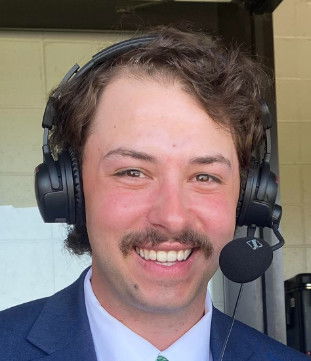
Bulls News: Hoyer shows a willingness to spend, just not like Dodgers |
Top free agent relief pitcher Tanner Scott has signed a four-year, 72 million dollar contract with, you guessed it, the Los Angeles Dodgers. The Cubs were rumored to be one of the teams involved in the bidding for the closer and ultimately fell short to the Dodgers, just like they did in the Roki Sasaki sweepstakes earlier this month and last season in the attempt to lure Shohei Ohtani.
Reports have come out since the news broke that the Cubs offered a deal of four years and $66 million to acquire the reliever — but they were unwilling to up their offer to the fourth year that Scott was seeking until the negotiations’ final hour. According to multiple reports, the Cubs finished second in the bidding and were a “preferred destination” of Scott. While I am not typically one to be encouraged by second place or by getting a seat at the table, certain parameters encourage me. For starters, let’s dive into Tanner Scott. He will be entering his age 31 season and has a career 3.56 ERA. However, the last two seasons have seen the left-hander morph into one of the game’s best closers. He has 54 saves in the previous three seasons but has pitched to the tune of a stellar 2.04 ERA since 2023 with 188 strikeouts in 150 innings. Take that resume and deliver it to a team like the Cubs, who have ranked as one of MLB’s worst high-leverage pitching teams over the past two seasons. You could draw a line from the Cubs' 83-win record and connect it almost directly to the fact that they blew over 25 saves in 2024 alone. It made sense for the Cubs to be active in his market, among others. Still, it also made sense to try to sign Josh Hader, Aroldis Chapman, Craig Kimbrel, David Robertson, Kenley Jansen, or Ryan Pressley, among others, over the past few years. So why were the Cubs deep for Scott? And why was it encouraging? For years, the Cubs have been tentative about offering long-term contracts or high AAV money to relievers because relief pitchers and their production are so volatile on a year-over-year basis. The Cubs have had a lot of success churning out reliable relievers by signing a plethora of meandering pitchers to minor league deals, working them through the Cubs’ pitch lab, and employing them in the right situations in the big leagues. Over the last half-decade, the Cubs have seen pitchers like Steve Cishek, Tyson Miller, Mark Leiter Jr., Julian Merryweather, Porter Hodge, Jorge Lopez, Hunter Bigge, Scott Effros, Mychal Givens, David Roberston, Ryan Tepera, Andrew Chafin, Brandon Kintzler, Jeremy Jeffress and Rowan Wick all turn in seasons with an ERA below 3.00. The system has been successful, but the Cubs have still struggled in high-leverage situations. The Cubs have been tentative about paying the “closer” since the Brandon Morrow contract failed, and the Craig Kimbrel contract was a disaster until it wasn’t, and as soon as it wasn’t, they traded him for Nick Madrigal. The Cubs have had some success building a bullpen this way, and with acquisitions like Colin Rea, Matthew Boyd, Matt Festa, Gavin Hollowell, Eli Morgan, Cody Poteet, Rob Zastryzny, and Caleb Thielbar the Cubs will look to catch lightning in a bottle with some of these guys as they have in the past. However, with an offer that large for Scott, it also appears that Jed Hoyer has identified a need to secure the back end of the bullpen. It is not lost on the Cubs that high leverage is an area to improve to close the gap and become a playoff team — that realization is encouraging. Not to mention, Hoyer has had a reserve to offer large deals to aging veteran pitchers—but that’s simply what the market currently dictates. Hoyer appears less concerned about overpaying and more focused on improving, whatever that may cost, which is undoubtedly a welcome mindset. It is unknown who the Cubs will pivot to. Will it be Kyle Finnegan or Carlos Estevez? Will they shift into the trade market with the Guardians or Padres? That remains to be seen. But at the very least, missing on Tanner Scott should show Cubs fans that Jed Hoyer has a willingness to spend, a willingness to improve, and a desire to address the bullpen with a significant addition — three things many fans could’ve rightfully questioned over the last few seasons.







